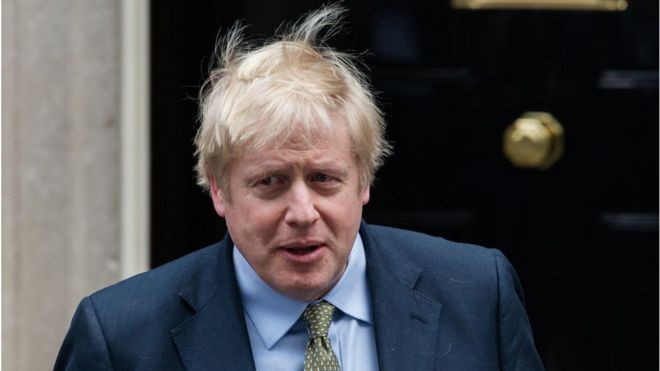 GETTY IMAGES
GETTY IMAGES
Prime Minister Boris Johnson has won a decisive majority, that will last the full five-year term, on the back of a fairly thin list of detailed economic promises.
But he now has the power to complete the Brexit process, pass budgets, and, if he chooses, start to address long term challenges that require tough up-front decisions.
But the fact that his chancellor can now safely mint the 50p coin for Brexit Day - 31 January - does not detract from some very difficult issues in the economic in-tray.
I've identified three economic issues that the PM will now have to address: the trading relationship with the EU, trade with the US, and keeping his new electorate happy.
1. The trading relationship with the EU
The most fundamental decision for the PM, after the UK legally leaves the European Union next month, is where to land our relationship with our biggest trade partner.
The public backing for his renegotiated deal creates the room to go for a straightforward Canada-style free trade agreement, detached from European regulation and standards.
That will mean trade frictions, such as checks on goods trade, across the Channel with Europe and within the UK across the Irish Sea.
If the UK does not sign up to "level playing field" arrangements on worker rights, the environment, and tax, it might also mean some trade taxes, known as tariffs, payable at the border.
This has a clear downside for advanced manufacturers dependent on seamless trade and supply of parts.
If this is the aim, and indeed if the PM continues to argue that the UK might leave the implementation phase without a trade deal at the end of next year, substantial uncertainty might still hang over the economy, affecting investment.
The new government is under significant pressure from industry to immediately rule out a World Trade Organisation terms exit in December 2020, so that stalled investment in, for example, car factories can indeed be "unleashed" as the PM has put it.
His manifesto did promise not to "extend the implementation period", which is a one-to-two year option in the Brexit deal.
But some fudge may be available here, if required. He also promised that manufacturing supply chains would be "protected".
And here is the rub. What does the PM actually want?
If he defines Brexit as "done" by the end of January, does his new coalition of voters care about how far from the EU the UK ends up?
The further the distance, the bigger the risk of immediate economic dislocation, but the more the freedom to do deals elsewhere.
Into this mix walked President Trump, with a congratulatory tweet to his friend the Prime Minister.
2. Trade with the US
A "massive new trade deal" that could be "far bigger and more lucrative than any deal that could be made with the EU" rather sounds like an invitation to contemplate rejecting a close deal with the EU in order to strike a quick one with the US.
The PM in the campaign vowed that the NHS and the prices it paid for pharmaceuticals were off the table in any US discussion, and that he would be willing to walk away from a US negotiation too, raising questions about what exactly would be negotiated.
The economic models contradict the assertion that a US deal would be more lucrative. But the PM has enough votes to ignore the modelling.
Indeed pursuing a full-blooded trade deal with President Trump, who would like to brandish progress ahead of his own elections next year, may be seen as a way to get the best possible offer out of the EU.
This is a vitally important new reality in this parliament.
It will decide the trade-off between economic alignment with the EU and the US.
Changing Britain's trade stance is a process that will create winners and losers up and down the country.
3. Making sure his economic policies keep his new voters onside
And yet, the UK parliamentary system does not lend itself to local MPs aggressively representing regional or sectoral interests, as occurs in the US Congress, for example. The PM has a majority to push through almost whatever he wants.
And this is the other fascinating consequence of this political earthquake.
The Conservatives' political DNA has changed. It now owes its majority to former mining towns, manufacturing centres, and towns considered victims of deindustrialisation.
Votes were won not just on Brexit promises, but on commitments to investment in health, in infrastructure, and in investment.
They will have to be delivered too. There is no more long grass left to kick the social care crisis into. That somehow needs to be reconciled with not putting up taxes, or VAT, lowering business rates, and not requiring anyone to have to sell their homes.
If he is to make tough decisions on this, on Brexit, and on trade, he needs to move quickly.
No comments:
Post a Comment